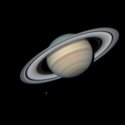The New York Times Thursday July 14, 2022
At a recent internal meeting of Meta employees, CEO Mark Zuckerberg said the company was facing one of the “worst downturns that we’ve seen in recent history,” reports The New York Times. He told Meta’s 77,800 workers that they should prepare to do more work with fewer resources. Amid global economic uncertainties, Zuckerberg’s big spending to build the immersive metaverse has has dragged down Meta’s profits, notes The Times. The company is also dealing with a blow to its advertising business after Apple made privacy changes to its mobile operating system that limit the amount of data that Facebook and Instagram can collect on its users. Read the full Story >>
AnOther Thursday July 14, 2022
New York-based photographer Gabriel Chiu’s new series High and Dry is the inverse of the 2003 film Lost in Translation, notes AnOther. Where the movie followed two lonely American protagonists in Tokyo, Chiu’s work focuses on an Asian couple lost, lonely, and in love in New York. “It’s the modern love story: two immigrants, specifically Asians, who’ve come to America and find each other,” says Chiu, who grew up in Boston as part of a first-generation Chinese family. “They’re dealing with American culture and values.” Read the full Story >>
PetaPixel Thursday July 14, 2022
Speaking of astrophotography: at PetaPixel, passionate night-sky photographer Daniel Stern has some ideas about the best cameras available now. The good news, notes Stern, is that great gear can be purchased even on a tight budget, and the advancements with compact star trackers allow for even greater detail to be captured. His choice for the best overall astrophotography camera: The Nikon Z6 II and Z6 II. Read the full Story >>
Astronomy Photographer of the Year Thursday July 14, 2022
The Royal Observatory Greenwich’s Astronomy Photographer of the Year competition has unveiled its 2022 shortlist, culled from over 3,000 entries from amateurs and professionals submitted from 67 countries worldwide. The contest includes nine categories: Skyscapes, Aurorae, People and Space, Our Sun, Our Moon, Planets, Comets and Asteroids, Stars and Nebulae, Galaxies, and Young Astronomy Photographer of the Year. The overall winner, to be announced on Sept. 15, will receive a $10,000 cash prize. Read the full Story >>




